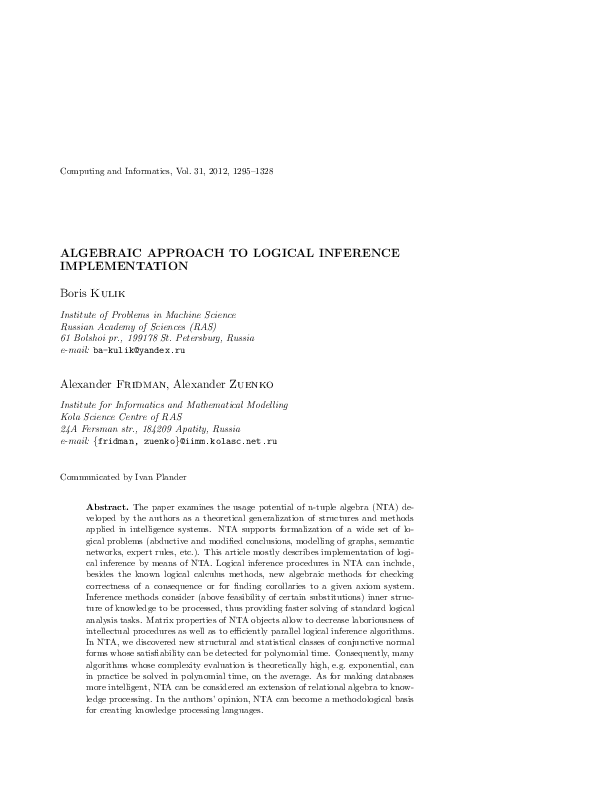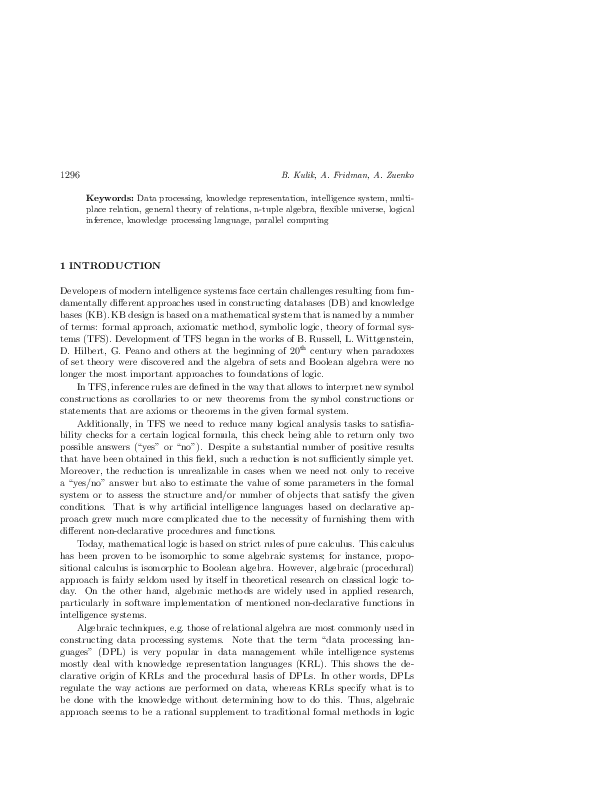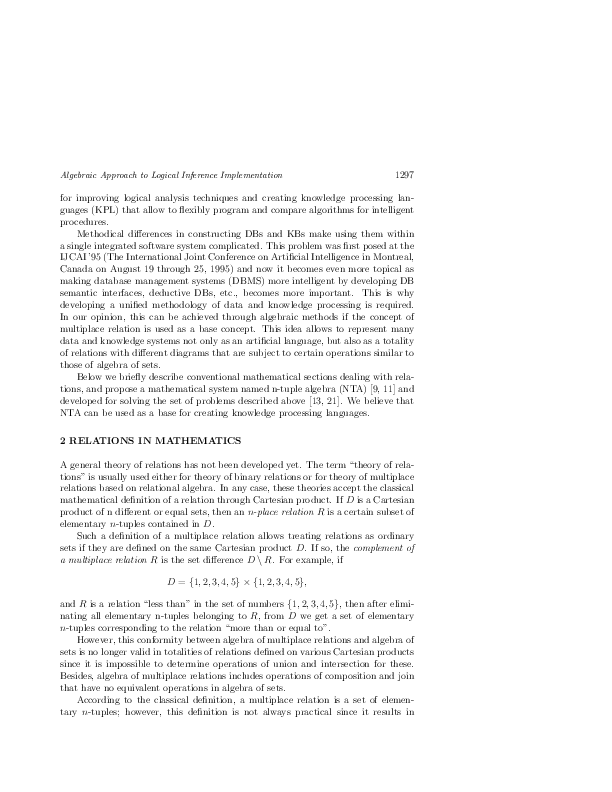Algebraic Approach to Logical Inference Implementation
keywords: Data processing, knowledge representation, intelligence system, multiplace relation, general theory of relations, n-tuple algebra, flexible universe, logical inference, knowledge processing language, parallel computing
The paper examines the usage potential of n-tuple algebra (NTA) developed by the authors as a theoretical generalization of structures and methods applied in intelligence systems. NTA supports formalization of a wide set of logical problems (abductive and modified conclusions, modelling of graphs, semantic networks, expert rules, etc.). This article mostly describes implementation of logical inference by means of NTA. Logical inference procedures in NTA can include, besides the known logical calculus methods, new algebraic methods for checking correctness of a consequence or for finding corollaries to a given axiom system. Inference methods consider (above feasibility of certain substitutions) inner structure of knowledge to be processed, thus providing faster solving of standard logical analysis tasks. Matrix properties of NTA objects allow to decrease laboriousness of intellectual procedures as well as to efficiently parallel logical inference algorithms. In NTA, we discovered new structural and statistical classes of conjunctive normal forms whose satisfiability can be detected for polynomial time. Consequently, many algorithms whose complexity evaluation is theoretically high, e.g. exponential, can in practice be solved in polynomial time, on the average. As for making databases more intelligent, NTA can be considered an extension of relational algebra to knowledge processing. In the authors' opinion, NTA can become a methodological basis for creating knowledge processing languages.
reference: Vol. 31, 2012, No. 6, pp. 1295–1328


